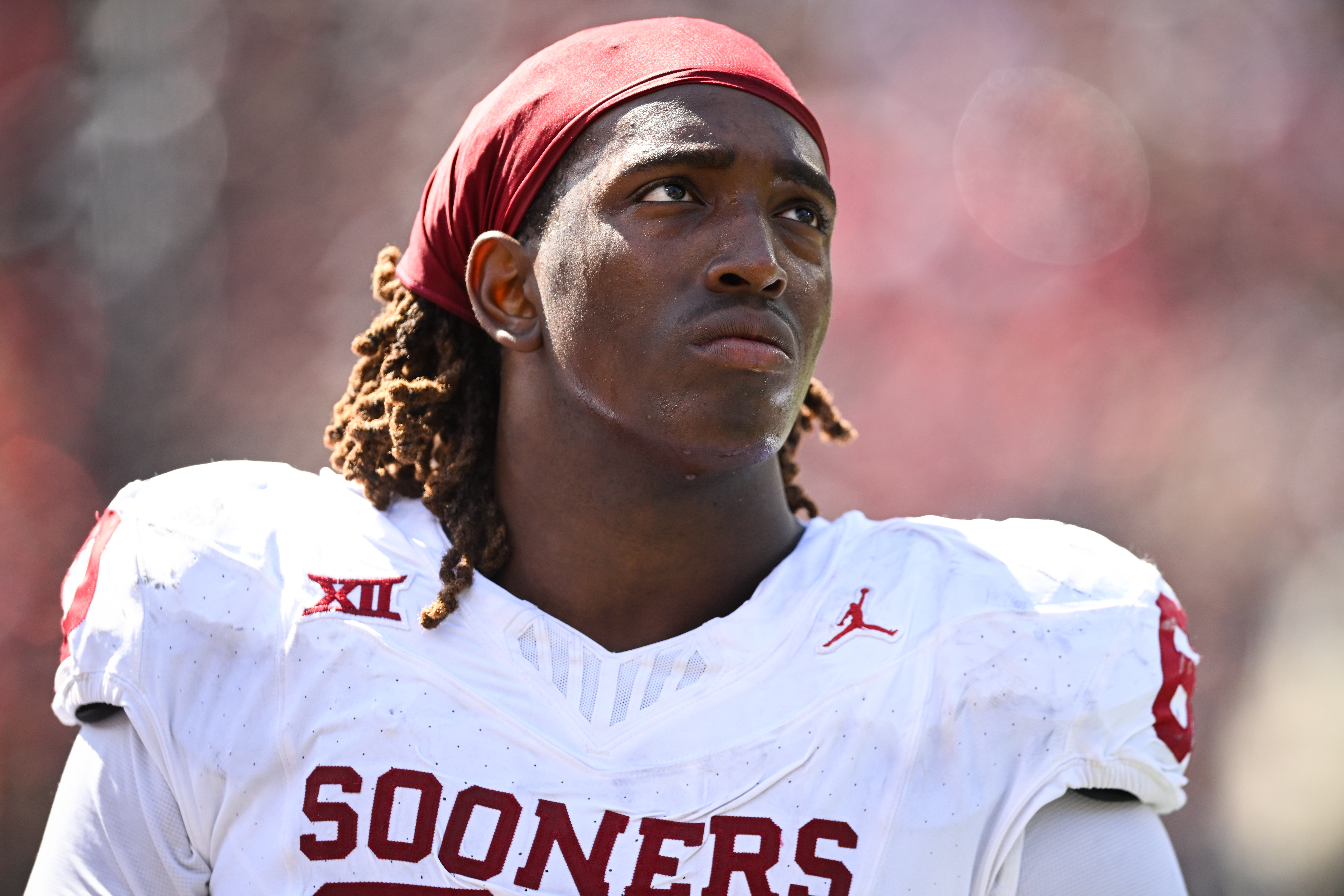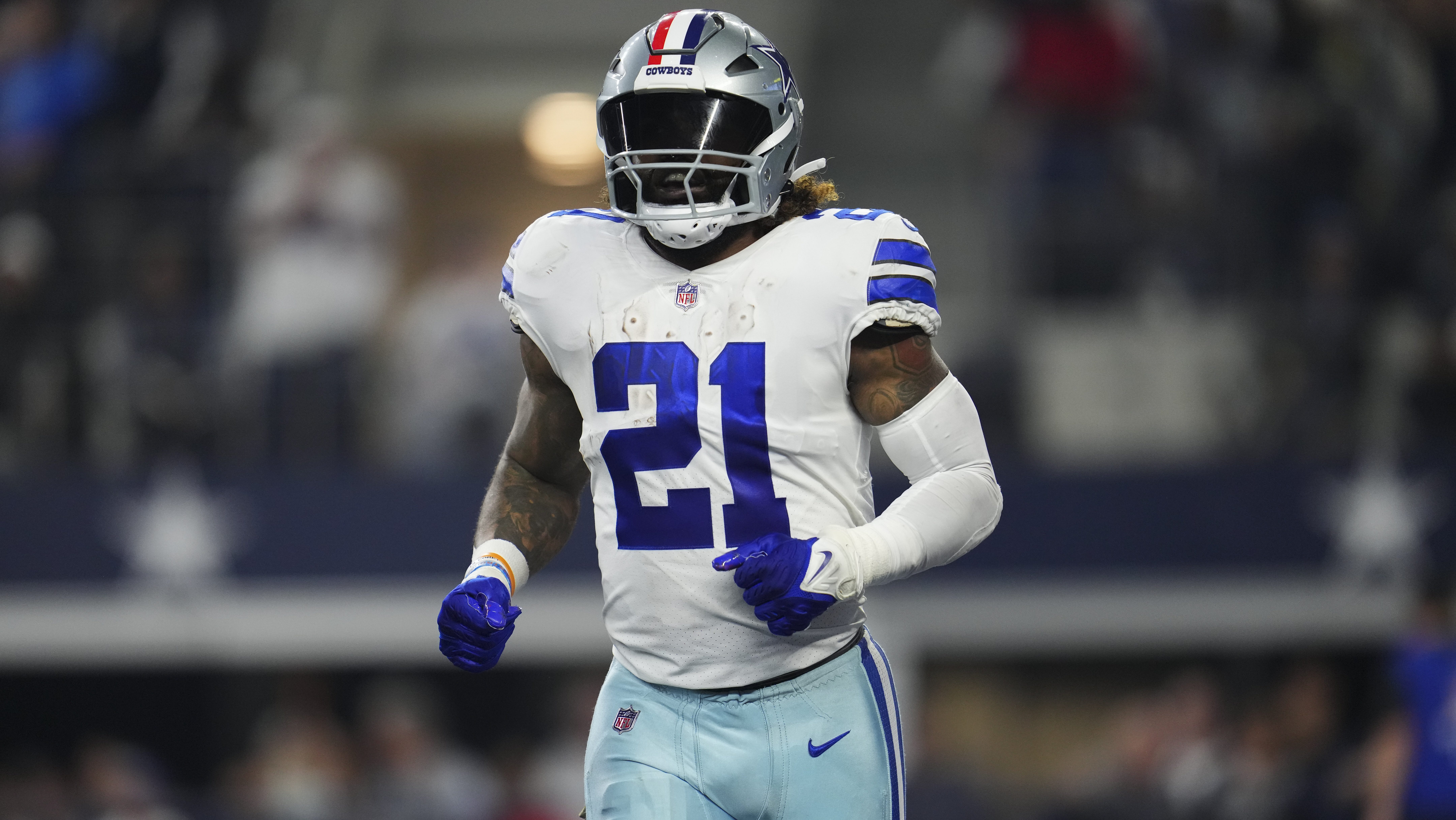Ezekiel Elliott made no excuses for his key fourth-quarter fumble in the Cowboys’ 24-13 loss to Seattle on Sunday.
Nor did he offer any alibis for his illegal touching penalty that wiped out an apparent 31-yard catch-and-run for a touchdown in the second quarter that would’ve tied the score. The same goes for his dropped pass that probably would’ve been a third-down conversion in the first half.
Still, Elliott was easily the Cowboys’ best offensive player.
He finished with 127 yards rushing on just 16 carries and a 7.94 average thanks to runs of 19, 19, 21 and 26 yards. Elliott’s average per carry was the second-highest average of the NFL career.
The yardage total was the eighth highest of his career; the Cowboys won the previous seven games.
That said, Sunday marked the third time in three games Elliott has had fewer than 20 carries in a game. Just so you know, it happened twice in 2016, if you don’t count the final game because he only played the first half. And it happened once in 2017, the 42-17 debacle against Denver.
Elliott was also targeted a career-high eight times with passes against Seattle, though he only caught three.
So this problem with the Cowboys’ offense is a lot deeper than force-feeding the ball to Elliott. That’s why he’s smart enough to know he doesn’t need to lobby the coaching staff for more opportunities.
When asked Wednesday if he needs to lobby coach Jason Garrett or play-caller Scott Linehan to lobby for more carries, he shut down the topic quickly.
"No,'' he said.
Blue Star
The center of the Dallas Cowboys universe.
The reason the Cowboys haven’t been able to get Elliott the ball more is their own ineptitude.
They’re eight-for-34 on third down (23.5 percent), which means they can’t sustain drives. The Cowboys have yet to run 60 plays in game.
They’re averaging 55 plays per game. The last two years, they’ve averaged 63 plays. Those eight plays matter.
They’re also playing from behind, which means they have to throw the ball - not hand it Elliott.
Dallas trailed Carolina 10-0 at halftime and 16-0 early in the fourth quarter. They trailed Seattle 17-3 at halftime and 24-6 in the fourth quarter.
"I mean, I would love to see it more, but I just think the nature of the games we've played in these first three games, we've been down,'' Elliott said Wednesday. "We've been having to try to come back.
"It's hard to come back and try to run the ball. When you run out of time in the game you can't just be sitting there trying to pound it. You can't have nine-minute drives when you need to score in three possessions.”
Garrett said Elliott is always a priority whether it’s handing him the ball or throwing it to him.
The Cowboys sent the offseason saying they wanted to get Elliott the ball in the passing game and they tried to get it to him in space without much success against Seattle.
He dropped a third-down pass, Prescott overthrew him in the middle of the field on another and a penalty negated an apparent 31-yard touchdown.
He has 11 receptions for only 37 yards, a 3.4 average. He averaged 10.8 per catch in his first two seasons.
"Sometimes he's a high priority and sometimes he's more of a check down,'' Garrett said. "Certainly what you want to do is be productive. Getting the ball in his hands is a good thing.
"Typically his run after catch is pretty positive.''
In their win over the New York Giants in Week 2, Dallas scored 10 points on their first two possessions.
They need another fast start like that against Detroit, which beat New England last week.
“We have to go out there and execute better as an offense,” he said. “We can’t have our defense on the field the majority of those first halves. That’s what’s been happening in the games when we haven’t been doing well on offense.
“We’ve got to come out there, get a fast start, execute, get some momentum and carry that through the game.”
Then the Cowboys can use their running game - Elliott and Prescott on the read option - to dictate the game’s tempo.
Until then, the struggles will continue.



